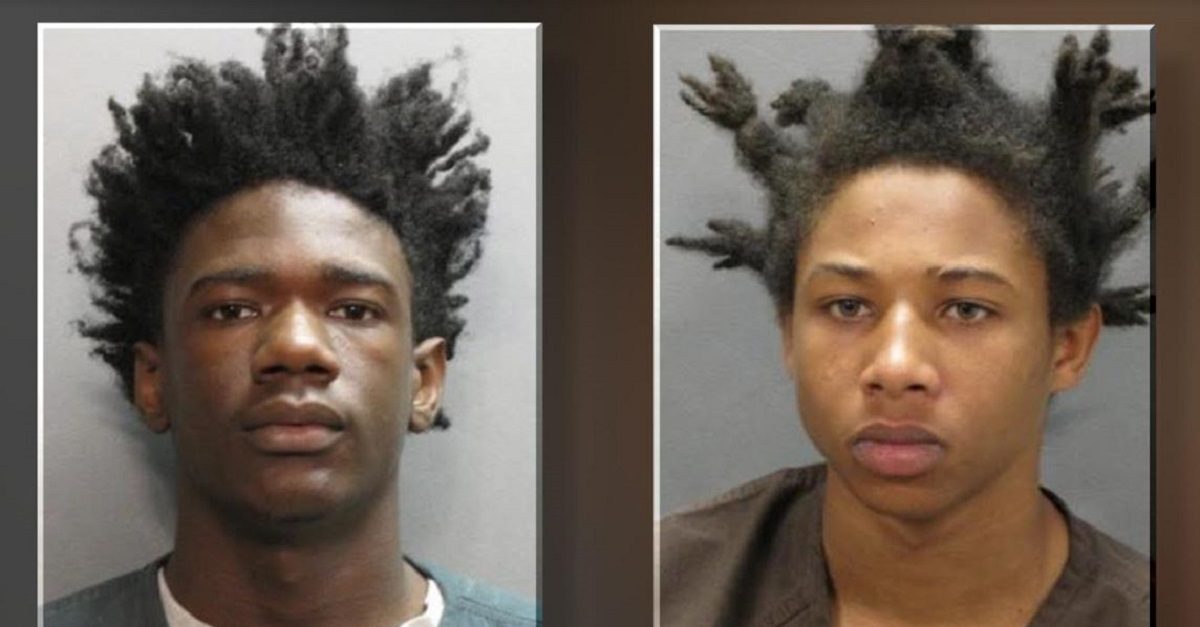
The trial of two Florida men who are accused of shooting and killing a 22-month-old infant ended for one defendant with prosecutors blaring rap videos in court. The videos featured both defendants.
Henry “Cracker Jack” Hayes and his co-defendant Kquame “J.B.” Richardson allegedly shot the infant in a gang attack which was aimed at victim’s cousin, Reginald Williams. The victim, Aiden McClendon, died from a fatal shot to the arm, prosecutors said during closing arguments Monday afternoon. McClendon, his mother, his grandmother, and his great-grandmother were all in a car together when the shooting occurred. The child was in the back seat. He was the only one injured.
“These are not songs; these are not raps — these are admissions,” prosecutors said of the songs. They said the songs were signals about past violent acts and future violent plans. The “J.B.” nickname Richardson carried meant “just blow,” or, in other words, just shoot. The prosecutor explained to jurors that being a shooter increased one’s status in a gang.
The shooting which killed McClendon was the culmination of a series of violent gang acts, jurors were told. “The bad blood had been brewing for some time . . . it started in November and concluded with the death of Aiden McClendon,” prosecutors said. “It was open season. [The defendant] wants to smoke one of them. On this day, it was Reginald Williams.”
Hayes and Richardson were tried together, but each defendant had his own jury. Closing arguments in the case against Hayes occurred Monday. Closings in the Richardson case are planned Tuesday.
McClendon’s mother testified that she recognized Hayes from the shooting. Seeking to deflect insinuations that her identification was incorrect, prosecutors said, “a person who sees someone shoot and kill their child does not forget the face of the person . . . she did not forget that face. It didn’t matter how the hair looked. She picked him out. No problem.”
Prosecutors described McClendon’t mother’s reaction to a photo of the defendant as “instant”: “that is the person who killed my baby,” she screamed upon seeing a photo of Hayes.
Several of the state’s key witnesses were gang members with their own legal troubles. Several testified that they were afraid about being attacked for testifying. One was stabbed in prison one day before testifying.
Prosecutors said both men were legally responsible for the McClendon murder under Florida’s “principal theory.” Under that theory, people who assist in the commission of a crime are, under some circumstances, “just as guilty” as the “other people involved,” the prosecutor explained.
Defense attorney James Hernandez said McClendon’s mother’s initial description of the shooter as a “light-complected African-American male” was incomplete. The boy’s mother offered no full description until later. The Hernandez suggested that the victim’s mother recognized the defendant’s face in a police lineup because she had seen his photo in a Facebook search.
The defense further said that while some forensic evidence pointed to Richardson, none pointed to Hayes.
During a rebuttal, prosecutors again returned to the rap videos. “This isn’t bling-blingin’ it! They’re not holding out gold chains! They’re holding out guns! This isn’t success; this is violence,” prosecutors said.
Hayes was originally charged with murder, attempted murder, discharging a firearm from a vehicle, shooting or throwing deadly missiles, and possession of a firearm by a juvenile delinquent found to have committed a felony. The judge is allowing jurors to consider several lesser-included offenses. Richardson faced all of the same charges, except for the final charge. The murder charges were updated to first-degree murder as a member of a criminal gang after the defendants were originally charged.
[Editor’s note: this piece has been updated.]